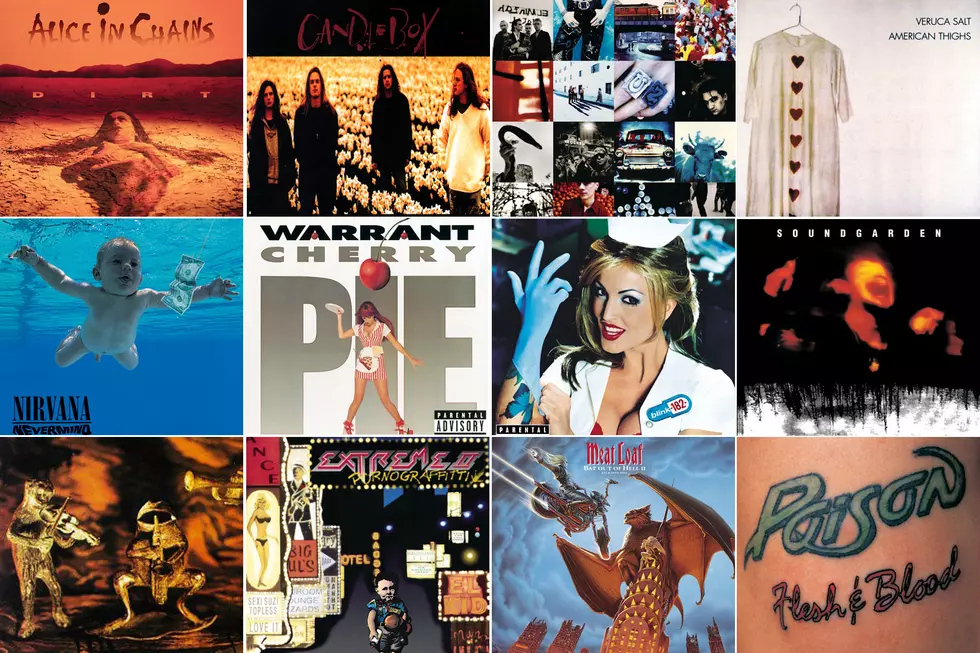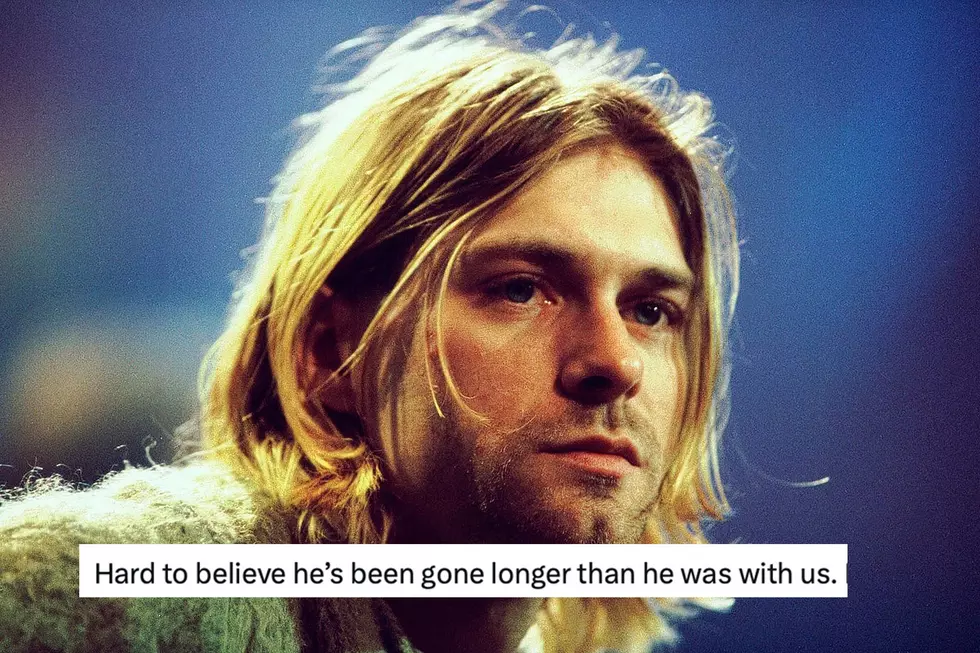
Nirvana’s ‘Smells Like Teen Spirit’ Dubbed Most Iconic Song in New Study
"Here we are now, entertain us." That refrain comes from Nirvana's classic track "Smells Like Teen Spirit" and it has resonated through the ages, entertaining plenty of music listeners along the way. In fact, a new study shows that the Kurt Cobain-penned track has been deemed the most iconic song in music history.
According to The Daily Mail, Dr. Mick Grierson from Goldsmiths, University of London conducted the study, examining 50 of the biggest hits in music history to see what features they shared. He began by checking out the "all-time best" lists of seven publications including Rolling Stone, VH-1, NME and Q, along with lists produced by several newspapers. After that, he used analytical software to examine some of the key traits of the top songs, including their key, beats per minute, chord variety, lyrical content, timbral variety and sonic variance.
"We looked at a range of measures for each song and compared them to see if there were similarities in these recordings which occurred less in other songs. We found the most significant thing these songs have in common is that most of them use sound in very varied, dynamic ways when compared to other records," stated Grierson. "This makes the sound of the record exciting, holding the listeners attention. By the same token, the sounds these songs use and the way they are combined is highly unique in each case."
Nirvana's "Smells Like Teen Spirit" came out on top in the study, having a majority of the key elements that made other songs popular as well. Grierson found that nearly 80 percent of the tracks were written in a major key, most often A, E, C or G. He also found the average tempo of popular songs to be at 125 beats per minute. Grierson also revealed that most songs have around 500 beats in the entire song, but Led Zeppelin's "Stairway to Heaven" has more than twice that number.
In addition to Nirvana and Zeppelin's "Stairway to Heaven," which placed 15th on the list, other harder rock songs making the cut included Queen's "Bohemian Rhapsody" at No. 5, Sex Pistols' "God Save the Queen" at No. 9, Guns N' Roses' "Sweet Child O' Mine" at No. 10, The Clash's "London Calling" at No. 11, Radiohead's "Creep" at No. 25, Jimi Hendrix's "Purple Haze" at No. 31 and The Who's "My Generation" at No. 45. John Lennon's "Imagine" placed second in the study, followed by U2's "One," Michael Jackson's "Billie Jean" and the aforementioned "Bohemian Rhapsody" from Queen.
Other data discovered was that chord changes were relatively low, often between six and eight times in most tracks. And words such as "Baby," "Feel," "Love" and "Nah" commonly appear the most in these tracks. But ultimately, Grierson determined, "There is no 'formula' for this, other than to make your song sound as different, diverse and exciting as possible. Even by applying the scientific process, what is considered iconic is ultimately up to the individual. My conclusion is that if you want a formula for creating great music, there is one: you just have to make something that sounds great."
So if you're an aspiring musician trying to write a hit song, there are a few statistical elements of note that can give you a target to shoot for, but as Grierson stated, just make something that sounds great and hope for the best.
See the Yearbook Photos of Kurt Cobain + Other Rock Stars
13 Unforgettable Kurt Cobain Moments
More From Loudwire









